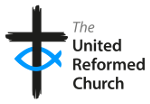Just over thirty people gathered at Sherwood United Reformed Church in Nottingham for a Synod Study Day led by Revd Dr David Cornick. David, a past General Secretary of the United Reformed Church, is now the General Secretary of Churches Together in England, and has been leading several Study Days about the Reformation with several denominations.
Our day included lectures on three aspects of the Reformation: What Happened in Europe; What Happened in Britain; and Living with the (long reaching) Consequences.
After each session there was time for questions from the floor, and in the afternoon we broke into four groups to discuss how, with our local churches together groups, we could celebrate the 500th Anniversary of what Luther unleashed by pinning those famous 95 theses on the door of his church.
The day was wrapped in worship, led by Revd Geoffrey Clarke, our Deputy Synod Moderator, and assisted by Revd Martha Mcinnes. Hymns included “Our God stands like a fortress Rock” by Martin Luther (translated by our own Stephen Orchard), “This is the gospel we hold fast” which mentions Luther written by Fred Pratt Green, and “Our God, we are a church Reformed” by Carolyn Winfrey Gilette.
During the day we were invited to write on a flip chart page a suggestion for reform we would like to make to the churches today.
We did not quite reach 95!
- Make 'Church Time' a moveable feast
- more accessible to young Christians. - No east, No west - all are welcome here.
- Challenge Authority.
- Be prepared to give your church away to other people - newcomers.
- Do not ask what your church can do for you,
ask what you can do for your church. - Do not ask what your church can do for the community,
ask what the community can do for your church. - A lot of the community use our church halls
- invite them to be part of the church fellowship.
These were used as points of refection in our closing worship.
It is difficult to feed back from the discussions, partly because what was written down on the sheets did not quite mach with what I remember was said.
We were challenged to decide how to approach celebrating the reformation ecumenically. This forced us to recognise that, for Anglicans and especially Catholics, it has a very different significance from what it has for 'Reformed Churches' like us and the Baptists. (The Methodists were not going to appear for another 270 years or so.)
We realised that we are still 'broken and divided' as a result of the Reformation, and that although we are all part of the one church, we have to recognise our different traditions and understandings. There has to be acceptance of each other (even within the URC!) and understanding of our differences. That means we have to be willing to receive as well as give; and we have to be aware that although the denominations use similar if not identical words in their liturgies, what those words mean is heavily influenced by the denominational context in which they are used. So, what we say may be misunderstood, and what we hear we may misunderstand.
There were many questions set: Are we at a time where there is a need for re-formation? Do we worship weekly or weakly? Does the Bible really matter as it did in the Reformation? The reformers embraced modern technology (the printing press), do we?
